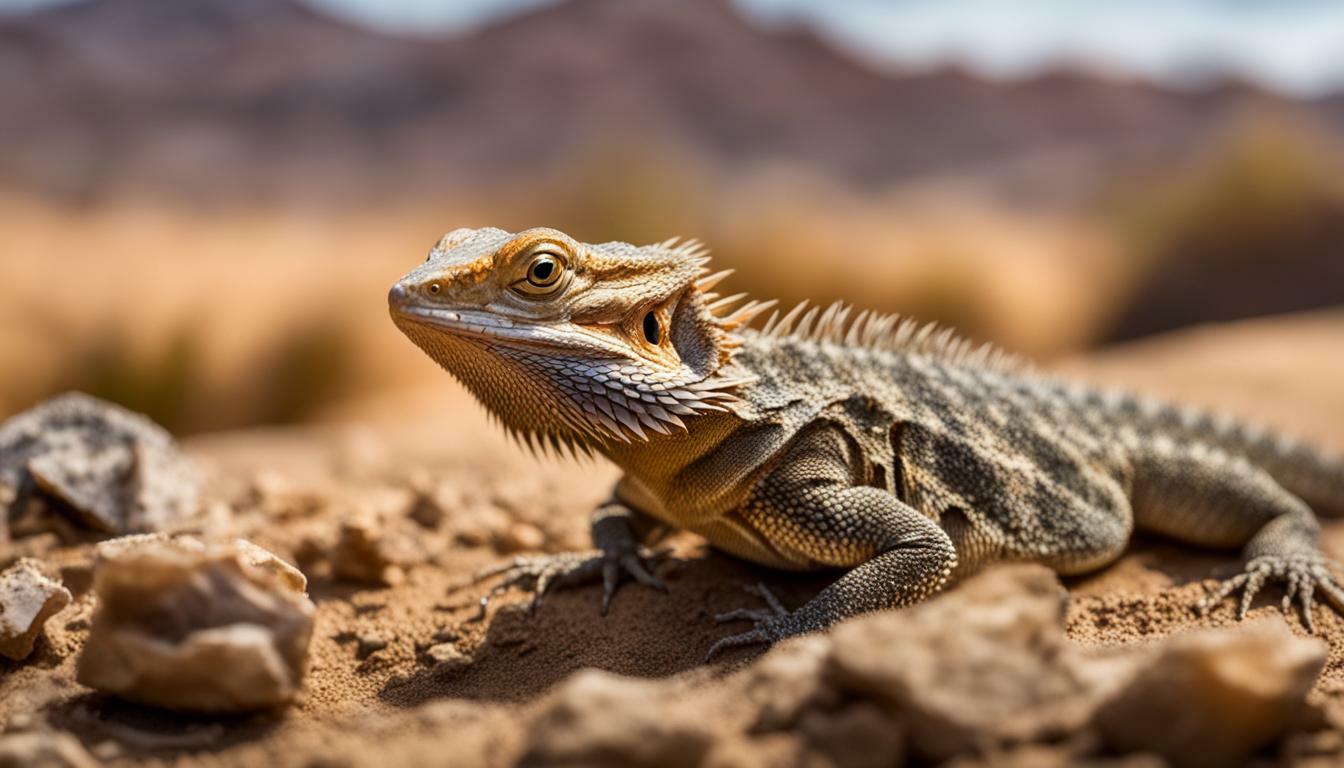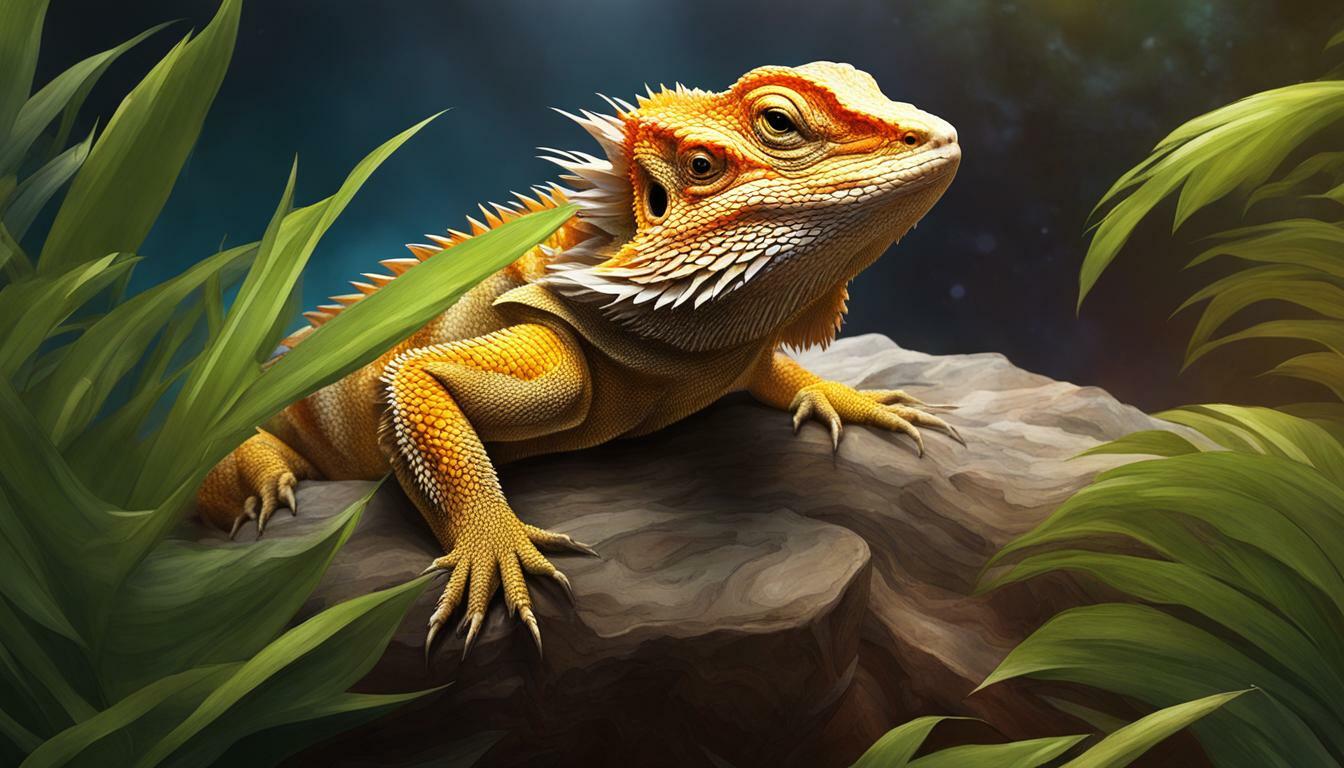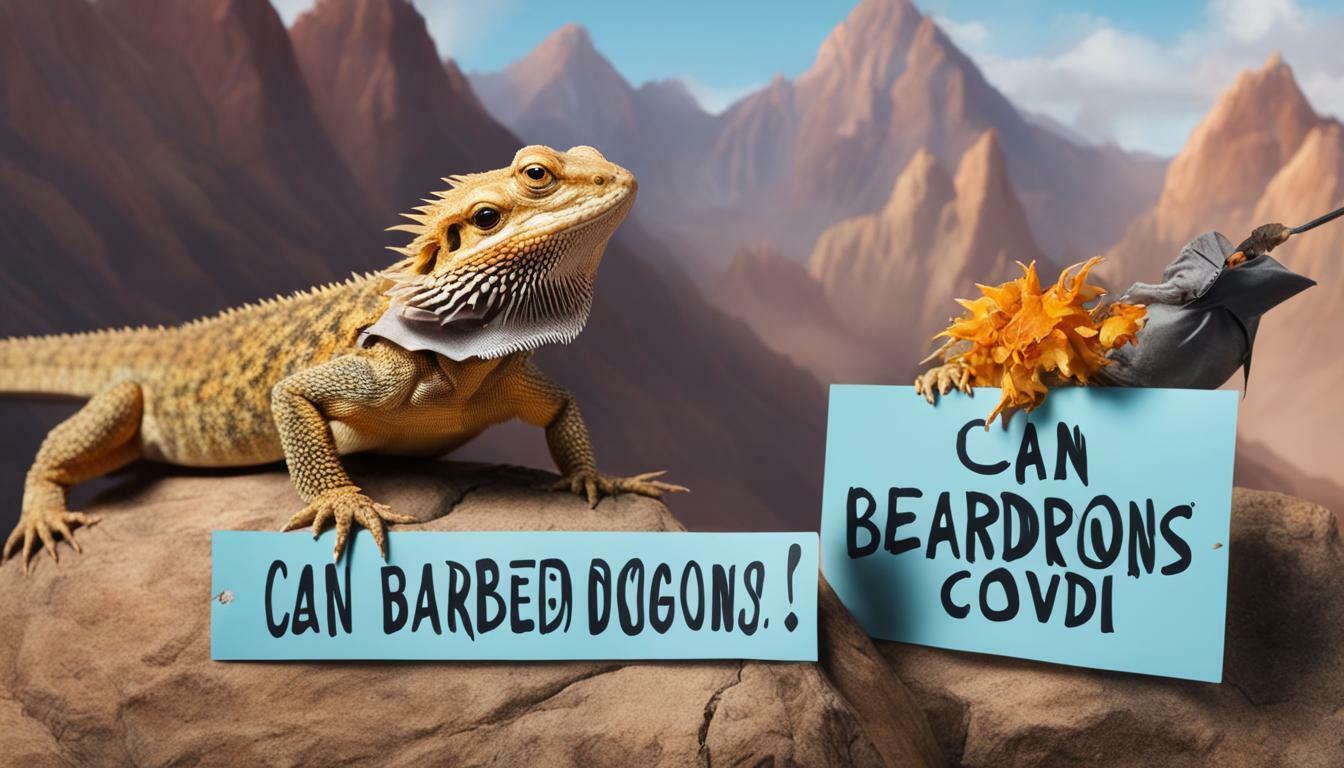Bearded dragons are known for their diverse diet, but can they safely consume maggots? In this guide, we will explore the topic of feeding maggots to bearded dragons, addressing the benefits and potential risks associated with this type of food.
Key Takeaways:
- Bearded dragons can eat maggots, but caution is advised to avoid introducing parasites or bacteria into their system.
- Maggots offer nutritional benefits, including protein, fat, carbohydrates, vitamins, and minerals that contribute to overall health.
- Feeding too many maggots can lead to nutritional imbalances, parasitic infection, choking hazards, allergic reactions, and obesity in bearded dragons.
- It is recommended to feed a limited amount of maggots per week, adjusting as the dragon grows.
- Maggots should be part of a varied diet that includes a mix of insects, vegetables, and fruits.
- Other safe insect options for bearded dragons include crickets, mealworms, dubia roaches, silkworms, butterworms, phoenix worms, and nightcrawlers.
- It is important to source insects from reputable suppliers and avoid feeding wild-caught bugs.
The Nutritional Benefits of Maggots for Bearded Dragons
Maggots can provide a range of nutritional benefits for bearded dragons due to their high protein content and other essential nutrients. These small larvae are rich in protein, which is crucial for the growth and development of bearded dragons. Protein helps build and repair tissues, support muscle development, and promote overall health.
In addition to protein, maggots offer a good source of fat, which is a vital energy source for bearded dragons. Fat provides the necessary calories needed to fuel their daily activities and metabolism. It also aids in the absorption of fat-soluble vitamins and helps maintain healthy skin and scales.
Furthermore, maggots contain carbohydrates, vitamins, and minerals that contribute to the overall well-being of bearded dragons. Carbohydrates are an important energy source, while vitamins and minerals play key roles in various bodily functions, such as immune system support, bone health, and enzyme activation.
Feeding your bearded dragon a diet that includes maggots can help promote better digestion, boost appetite, strengthen the immune system, and improve overall health. However, it is crucial to exercise caution and only offer store-bought or captive-bred maggots to avoid potential risks associated with wild-caught insects. Additionally, it is essential to maintain a balanced diet by incorporating a variety of insects, vegetables, and fruits to ensure your bearded dragon receives a wide range of nutrients.
| Nutrient | Benefit |
|---|---|
| Protein | Aids in growth and tissue repair |
| Fat | Provides energy and supports skin health |
| Carbohydrates | Supplies energy for daily activities |
| Vitamins and Minerals | Promote overall health and immune system function |
By incorporating maggots into your bearded dragon’s diet in moderation and alongside other safe insects, you can ensure they receive a well-rounded nutritional intake to thrive. Remember to source insects from reputable suppliers and consult with a reptile veterinarian for specific feeding guidelines based on your pet’s age, size, and health condition.
Potential Risks and Considerations When Feeding Bearded Dragons Maggots
While maggots can offer several benefits to bearded dragons, it is crucial to consider the potential risks and exercise caution when including them in their diet. Feeding bearded dragons maggots can introduce harmful parasites or bacteria into their digestive system if not sourced from reputable suppliers. It is important to remember that not all maggots are safe for consumption, especially those found in the wild.
One of the key risks associated with feeding bearded dragons maggots is the potential for nutritional imbalances. While maggots are rich in protein, fat, carbohydrates, vitamins, and minerals, overfeeding can lead to excessive intake of certain nutrients, resulting in obesity, digestive issues, and other health problems. It is recommended to feed no more than 8-10 maggots per week for adults and juveniles, adjusting the quantity as the dragon grows.
Another risk to consider is the potential for parasitic infection. Maggots that are not properly sourced or handled can carry parasites that can harm the bearded dragon’s health. It is important to ensure that the maggots are from a trusted source and have been properly bred and raised in a controlled environment to minimize the risk of infection.
| Potential Risks When Feeding Bearded Dragons Maggots | Preventive Measures |
|---|---|
| Nutritional imbalances | Feed no more than 8-10 maggots per week and provide a varied diet |
| Parasitic infection | Source maggots from reputable suppliers and avoid feeding wild-caught bugs |
| Choking hazard | Ensure maggots are an appropriate size for the dragon’s age and size |
| Allergic reactions | Monitor the dragon for any signs of allergies or adverse reactions and discontinue feeding if necessary |
| Obesity issues | Moderate the quantity of maggots and include a balanced diet of insects, vegetables, and fruits |
In conclusion, while bearded dragons can eat maggots and gain nutritional benefits from them, it is important to be mindful of the potential risks. By sourcing maggots from reputable suppliers, feeding in moderation, and providing a varied diet, bearded dragon owners can minimize the potential risks and ensure the overall health and well-being of their beloved pets.
Safe Dietary Options for Bearded Dragons: Beyond Maggots
While maggots can be a part of a bearded dragon’s diet, it’s essential to provide them with a range of safe and nutritious food options for optimal health. Incorporating a variety of insects, vegetables, and fruits is key to ensuring a well-rounded and balanced diet.
When it comes to insect alternatives, there are several options to consider. Crickets are a popular choice, rich in protein and easy to find at pet stores or online suppliers. They can be dusted with calcium and vitamin supplements to boost their nutritional value for your bearded dragon.
| Insect | Nutritional Content |
|---|---|
| Crickets | High in protein, low in fat |
| Mealworms | Good source of protein and fiber |
| Dubia Roaches | Nutrient-rich with a favorable calcium to phosphorus ratio |
| Silkworms | Great source of protein and essential amino acids |
| Butterworms | High in fat, suitable for occasional treats |
| Phoenix Worms | Packed with calcium and low in fat |
| Nightcrawlers | Rich in protein, easy to digest |
It’s important to note that while these insects provide vital nutrition, you should only source them from reputable suppliers to ensure they are free from harmful parasites or chemicals. Avoid feeding your bearded dragon insects that are caught in the wild, as they may carry diseases or have been exposed to pesticides.
In addition to insects, bearded dragons also benefit from a variety of vegetables and fruits in their diet. Leafy greens like kale, collard greens, and dandelion greens are excellent sources of essential vitamins and minerals. Fruits like blueberries, raspberries, and mangoes can be offered as occasional treats due to their higher sugar content.
Remember, a balanced diet is the key to keeping your bearded dragon healthy and thriving. By providing safe dietary options beyond maggots, you can ensure your pet gets the nutrients they need for optimal growth and well-being.
Conclusion
In conclusion, bearded dragons can eat maggots, but it is crucial to approach their inclusion in the diet with caution and moderation. Maggots can offer several benefits to these exotic pets, including improved digestion, boosted appetite, enhanced disease defense, and overall health improvement. They are rich in essential nutrients like protein, fat, carbohydrates, vitamins, and minerals, which contribute to the well-being of bearded dragons.
However, it is important to be mindful of the potential risks associated with feeding maggots to bearded dragons. To ensure the safety of your pet, it is recommended to only offer store-bought or captive-bred maggots that are free from parasites and harmful bacteria.
Feeding too many maggots can lead to nutritional imbalances, parasitic infections, choking hazards, allergic reactions, and obesity issues. Therefore, it is advised to feed no more than 8-10 maggots per week for adult and juvenile bearded dragons, adjusting the quantity as your dragon grows.
Additionally, it’s essential to provide a varied diet for your bearded dragon, incorporating a mix of insects, vegetables, and fruits. Other safe insect options include crickets, mealworms, dubia roaches, silkworms, butterworms, phoenix worms, and nightcrawlers. Remember to source insects from reputable suppliers to avoid feeding wild-caught bugs, which may carry harmful parasites. Maintaining a balanced and diverse diet is key to ensuring the overall health and well-being of your bearded dragon.
FAQ
Can bearded dragons eat maggots?
Yes, bearded dragons can eat maggots, but caution should be exercised. It is recommended to offer store-bought or captive-bred maggots to avoid introducing harmful parasites or bacteria into their digestive system.
What are the benefits of feeding maggots to bearded dragons?
Maggots can provide benefits such as better digestion, appetite boost, disease defense, immunity improvement, and overall health boost due to their nutritional content, which includes protein, fat, carbohydrates, vitamins, and minerals.
What are the potential risks of feeding bearded dragons maggots?
Feeding too many maggots can lead to nutritional imbalances, parasitic infection, choking hazard, allergic reactions, and obesity issues in bearded dragons. It is important to feed no more than 8-10 maggots per week for adults and juveniles, adjusting as the dragon grows.
What are some alternative dietary options for bearded dragons?
Aside from maggots, other safe insect options for bearded dragons include crickets, mealworms, dubia roaches, silkworms, butterworms, phoenix worms, and nightcrawlers. It is important to source insects from reputable suppliers and avoid feeding wild-caught bugs.





Leave a Reply